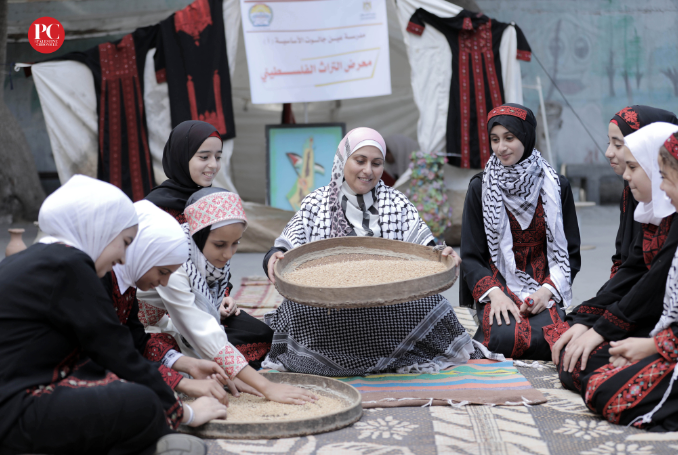
By Ramzy Baroud 
If the oppressed, the natives of the land, are not fully vanquished or decimated, they are likely to rise, fight and win back their freedom.
Oddly, it was Israeli historian Benny Morris who got it right, when he offered a candid prediction of the future of his country and its war with the Palestinians.
“The Palestinians look at everything from a broad, long-term perspective,” he said in an interview with the Israeli newspaper Haaretz in 2019. “They see that, at the moment, there are five-six-seven million Jews here, surrounded by hundreds of millions of Arabs. They have no reason to give in, because the Jewish state can’t last. They are bound to win. In another 30 to 50 years they will overcome us, come what may.”
Morris is right. He is correct in the sense that Palestinians will not give up, that there can never be a situation where societies indefinitely survive and thrive within a permanent matrix of racial segregation, violence and exclusion – exclusion of the other, the Palestinians and the isolation of the self.
The very history of Palestine is a testament to such a truth. If the oppressed, the natives of the land, are not fully vanquished or decimated, they are likely to rise, fight and win back their freedom.
It must be utterly frustrating for Israel that all the killings and destruction underway in Gaza has not been enough to affect the overall outcomes of the war: the ‘total victory’ of which Netanyahu continues to speak.
Israel’s frustration is understandable because, like all military occupiers of the past, Tel Aviv continues to believe that the right quantity of violence should be enough to subdue colonized nations.
But Palestinians have a different intellectual trajectory that guides their collective behavior.
Of the many classifications of history, modern French historians separate between ‘histoire événementielle’ – evental history – and ‘longue durée’ – long history. In short, the former believes that history is the result of the accumulation of consequential events over the course of time, while the latter sees history on a far more complex level.
Credible history can only be seen in its totality, not merely the total events of history, recent or old, but the sum of feelings, the culmination of ideas, the evolution of collective consciousness, identities, relationships and the subtle changes that occur to societies over the course of time.
Palestinians are the perfect example of history being shaped by ideas, not guns; memories, not politics; collective hope, not international relations. They will eventually win their freedom, because they have invested in a long-term trajectory of ideas, memories and communal aspirations, which often translate to spirituality or, rather, a deep, immovable faith that grows stronger, even during times of horrific wars.
In an interview I conducted with former United Nations Special Rapporteur, Professor Richard Falk in 2020, he summarized the struggle in Palestine as a war between those with arms and and those with legitimacy. He said that in the context of national liberation movements, there are two kinds of war: the actual war, as in soldiers carrying guns, and the legitimacy war. The one who wins the latter will ultimately prevail.
Palestinians do, indeed, “look at everything from a broad, long-term perspective”. Agreeing with Morris’ statement may seem odd for, after all, societies are often driven by their own class struggles and socio-economic agendas instead of a unified and cohesive long-term vision.
This is where longue durée becomes most relevant in the Palestinian case. Even if Palestinians have not made a common agreement to wait for the invaders to leave, or for Palestine to, once again, become a place of social, racial and religious co-existence, they are driven, even if subconsciously, by the same energy that compelled their ancestors to push back against injustice in all its forms.
While many western politicians and academics are busy blaming Palestinains for their own oppression, Palestinian society continues to evolve based on entirely independent dynamics. For example, in Palestine, sumud, or resilience, is an ingrained culture, hardly subject to outside stimuli, political or academic. It is a culture that is as old as time. Innate. Intuitive. Generational.
This Palestinian saga started long before the war, long before Israel, long before modern colonialism. This truth demonstrates that history is not just moved by mere events, but by countless other factors; that, while ‘evental history’ – the political, military and economic aspects that contribute to the making of history through short-term events – is important, long-term history offers a more profound understanding of the past, and its consequences.
This discussion should engage all of those who are concerned about the struggle in Palestine, and are keen to present a version of the truth that is not driven by future political interests, but a profound understanding of the past. Only then we can begin to slowly liberate the Palestinian narrative from all the convenient histories imposed on the Palestinian people.
This is not an easy task, but an unavoidable one as it is critical to break away from the confines of superimposed language, historical events, recurring dates, dehumanizing statistics and outright deception.
Ultimately, it should be clear to any astute reader of history that, while fighter jets and bunker-buster bombs may impact short-term historical events, courage, faith, and communal love determine long-term history. This is why Palestinians are winning the legitimacy war, and this is why freedom for the Palestinian people is only a matter of time.

– Ramzy Baroud is a journalist and the Editor of The Palestine Chronicle. He is the author of six books. His latest book, co-edited with Ilan Pappé, is “Our Vision for Liberation: Engaged Palestinian Leaders and Intellectuals Speak out”. Dr. Baroud is a Non-resident Senior Research Fellow at the Center for Islam and Global Affairs (CIGA). His website is www.ramzybaroud.net